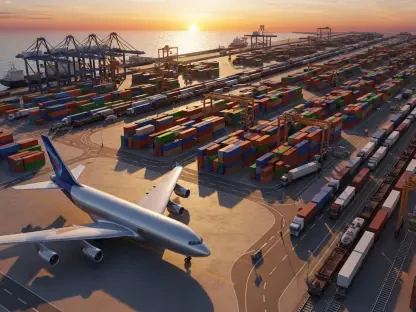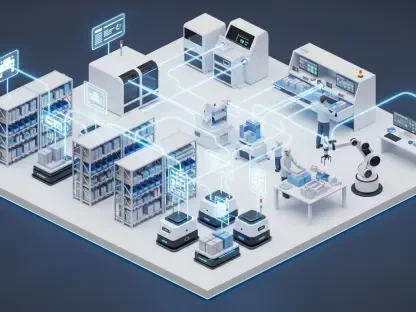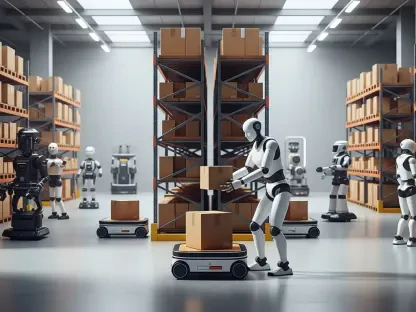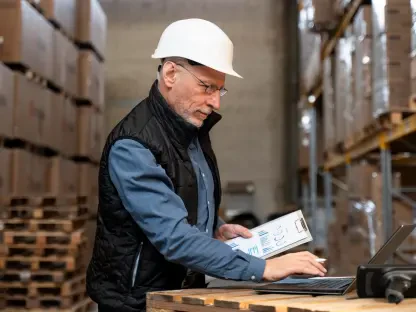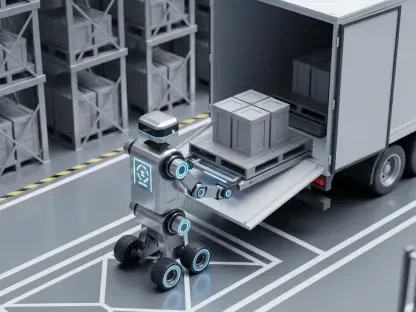The rapid changes in urban logistics are driven by the need for increased operational efficiency, sustainability, and adaptability in last-mile delivery networks. The DECARBOMILE project is at the forefront of this transformation, innovatively integrating various technologies to create a dynamic logistics environment. Through the use of advanced Information and Communication Technology (ICT) tools, DECARBOMILE aims to revolutionize the sector, ensuring that urban logistics become more efficient, customer-oriented, and environmentally friendly. This initiative’s profound impact is reflected in new standards being set for operational procedures and strategic planning in the field.
Integration of Advanced ICT Tools
The heart of the DECARBOMILE project lies in its integration of advanced ICT tools, which are pivotal in revolutionizing logistics operations. These tools encompass various aspects, such as strategic network planning, short-term forecasting, real-time management, and performance analytics. By leveraging these technologies, the project aims to improve delivery times and customer satisfaction without compromising operational efficiency. Key innovations include the use of digital city models and dynamic e-routing solutions that help in optimizing routes based on real-time data. This minimizes delays and ensures a smoother delivery process.
Additionally, the implementation of optimization algorithms aids in reducing costs and environmental impact by streamlining delivery operations. A significant focus is placed on ensuring these new tools are compatible with existing IT systems. This compatibility is crucial to foster a seamless transition for businesses adopting the new solutions, avoiding disruptions to everyday operations. Such a thoughtful approach highlights DECARBOMILE’s commitment to delivering pragmatic and impactful transformations in urban logistics.
Enhanced Track and Trace Capabilities
Visibility and control within the logistics process are significantly enhanced through DECARBOMILE’s advanced Track and Trace and Monitoring (T&T&M) tools. Utilizing beacons and trackers that monitor and transmit critical data about transit conditions, the project ensures a higher level of operational insight. This technology not only tracks vehicle geolocations but also provides vital information regarding the conditions under which goods are transported, such as temperature and humidity. This real-time data transmission is facilitated through a user-friendly web application, offering a comprehensive view to stakeholders.
The tools provided by DECARBOMILE for track and trace capabilities empower stakeholders with centralized management functionality. This includes streamlining the registration and management of vehicles, drivers, and devices involved in the logistics process. Notably, a strong emphasis is placed on green logistics initiatives, promoting the use of electric vehicles and bikes. Vehicles are meticulously categorized based on type, fuel, size, and load capacity. This strategically detailed classification system aids in further streamlining operations, reducing the carbon footprint, and encouraging the adoption of more sustainable practices in urban logistics.
Load Optimization and Dynamic E-Routing
DECARBOMILE introduces innovative load optimization techniques to the urban logistics sector, ensuring the maximum utilization of vehicle capacity. This optimization significantly reduces the number of trips required, thereby directly impacting the reduction of emissions and operational costs. Complementary to these techniques is the dynamic e-routing system, which actively adjusts delivery routes based on real-time traffic conditions and delivery priorities. This ensures that fuel consumption is minimized and delivery times are optimized, enhancing overall operational efficiency.
The combination of advanced load management and routing solutions underscores DECARBOMILE’s dedication to environmental sustainability and operational excellence. By continuously refining these technologies, the project strives to provide logistics networks with the tools needed to tackle challenges in urban delivery, setting a precedent for future innovations in the industry. This dual focus on environmental impact and efficiency ensures that urban logistics become more sustainable and reliable.
Predictive and Network Design Algorithms
Another cornerstone of DECARBOMILE’s innovation efforts is its suite of sophisticated forecasting and network design algorithms. These predictive tools are designed to anticipate demand fluctuations, allowing for proactive resource allocation. By effectively predicting changes in demand, logistics operations can be better prepared, ensuring resources are optimally used and delivery timelines are adhered to. Network design algorithms further enhance these capabilities by creating robust logistics networks that optimize distances traveled and reduce overall emissions.
The algorithms’ collaborative interplay facilitates strategic planning, making logistics operations both sustainable and efficient. These tools are integral to the project’s overarching goals, fostering growth in an environmentally conscious manner. This systematic approach to forecasting and network design positions DECARBOMILE as a leading force in the push towards a sustainable future in urban logistics.
Living Labs and Real-World Testing
To ensure the practical applicability and continuous improvement of its innovations, DECARBOMILE deploys its solutions in Living Labs situated in Hamburg, Logroño, Nantes, and Istanbul. These Living Labs serve as real-world testing grounds where the tangible effectiveness of the project’s tools and methodologies can be observed. Here, challenges such as delays in use case definition and stakeholder engagement are actively addressed, ensuring that the solutions developed are practical and adaptable to varied urban contexts.
A critical component of these Living Labs is the use of digital twins, which simulate urban environments to identify bottlenecks and optimize delivery routes. Running these simulations allows DECARBOMILE to fine-tune its innovations based on real-time data and insights. This forward-thinking approach highlights the project’s commitment to practical and scalable solutions in urban logistics, ensuring that its advancements are not just theoretical but have tangible, real-world applications.
Short-Term Planning and Real-Time Management
Short-term planning and real-time management are essential elements in DECARBOMILE’s strategic framework. By employing forecasting algorithms in tandem with load optimization tools, the project effectively addresses immediate demand fluctuations. This ensures that vehicles are loaded to their full capacity, reducing the number of necessary trips and consolidating deliveries to minimize environmental impact. These dynamic adjustments are critical in handling the fast-paced nature of urban logistics.
Real-time management is enhanced by dynamic e-routing and performance metrics tracking. The ability to adapt routes based on current traffic conditions and other variables ensures that deliveries are prompt and efficient. Performance metrics provide continuous feedback, highlighting areas for improvement and ensuring that DECARBOMILE maintains high standards of service. This holistic approach reinforces the project’s role in revolutionizing urban logistics, creating a more efficient and sustainable delivery network.
Moving Towards a Greener Future
Urban logistics are undergoing rapid transformations to boost operational efficiency, sustainability, and adaptability in last-mile delivery networks. Leading this change is the DECARBOMILE project, which spearheads innovation by incorporating various technologies to cultivate a dynamic logistics environment. Utilizing advanced Information and Communication Technology (ICT) tools, DECARBOMILE strives to revolutionize the sector, enhancing efficiency, customer orientation, and environmental friendliness within urban logistics. This initiative is making waves, setting new benchmarks for operational procedures and strategic planning. It demonstrates how technology can reshape urban logistics, ensuring faster, greener, and more efficient delivery systems. By focusing on these areas, DECARBOMILE isn’t just setting new industry standards—it is also significantly contributing to broader environmental and economic goals. The project’s significant impact will likely influence how modern logistics are handled, guiding other initiatives to follow suit for a more sustainable future in urban delivery systems.


